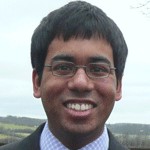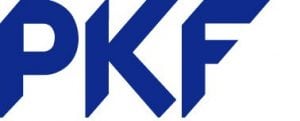Arnab studied Economics and Economic History at LSE. He is currently working as a Chartered Accountant (ACA) at KPMG in London.
How did you find out about chartered accountancy?
As a student, I attended careers fairs, where I met representatives from accountancy firms. This sparked an interest in accountancy, so I completed a summer internship at KPMG in 2007. After graduating in 2008, I joined KPMG on the ACA training scheme and qualified as an ICAEW Chartered Accountant in 2011.
Why did you choose the ACA qualification?
I believe it’s the premier accountancy qualification and provides a solid foundation for a business career. It keeps my options open for a while longer, since chartered accountants not only work in accountancy firms, but also in industry and other organisations. The ACA is an internationally recognised qualification. This is an added bonus since I’d like to work overseas in the future.
Do you have any ACA study tips?
The most difficult part of my training was juggling work with study. The exam pathway is different to studying at university, since exams take place throughout the year. Although trainees are given time off to go to college, independent reading and practising questions are needed to pass exams. It is worthwhile discussing the work with your peers and helping each other with different parts of the syllabus.
Did you always want to be an accountant?
I first became interested in chartered accountancy when I undertook work experience at a firm in my home town. I went on to work for an international firm, Kroll, which showed me that there were a variety of areas that would provide interesting and exciting experiences during my career.
What was the interview/assessment centre like?
The first interview was competency based; a manager asked me a series of questions for 45 minutes. The questions started off based on my CV and achievements, and then moved onto why I was interested in working for the firm. There was a discussion about recent news stories and how they had affected the industry.
The final round interview with a partner included a ten minute presentation. To prepare I researched a company, read press coverage and spoke to staff in my department. I also researched what to look for in an income statement and balance sheet.
The presentation led to a discussion about the strengths and weaknesses of the company and then this moved onto considering wider business issues, including potential opportunities in the industry. There was a virtual office exercise where I had to answer emails, ensuring that I prioritised the most important ones and gave appropriate responses.
What does your role entail?
I work in Forensic, where accountants investigate fraud and money laundering claims and resolve disputes between companies. I have put the knowledge I gained during my ACA studies into practice. I have performed research and analysis for advisory reports, which add value and help to solve problems that clients are facing. It’s interesting to work on different types of cases, especially when they relate to high profile companies or events which are featured in the news.
What do you enjoy most about your job?
I enjoy overseas travel opportunities during my job. I have attended courses in Athens and Barcelona. These were both global events with delegates from different offices around the world. One main benefit was meeting people from other backgrounds with whom I still keep in touch. There were knowledgeable presenters who gave interesting talks and provided useful training exercises.
What would you like to achieve in the future?
I would like to continue developing my experience at KPMG by working on different projects, as well as keep enhancing my accounting knowledge. I hope to work on some projects overseas, which will provide a broader outlook of the business. A newly qualified chartered accountant is fairly free to move between departments at an accountancy firm or work in banks and industry. At the moment I’m trying to develop my overall skill set and keep my options open.
Do you have any tips for students?
Keep an open mind. Most people have a stereotypical view of accountants but in today’s rapidly changing world, chartered accountants are more like business advisers. You need to have good numerical skills, but more important is the ability to critically evaluate financial information and teamwork.
During university, attend careers fairs and recruitment events to speak to people currently in the profession. You can also attend Insight days for undergraduates at large firms and complete a summer internship after your penultimate year. This will give you a real taste of the ACA training life, and the opportunity to secure a training contract before you start your final year at university.
To find out more about Insight Days, visit the events section of the Inside Careers website. Big companies like KPMG, Lloyds, PwC, E&Y and Deloitte, to name but a few, often organise these kinds of events.





